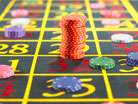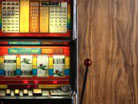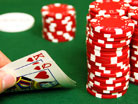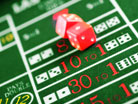Compulsive Gambling Addiction
Compulsive gambling
Compulsive gambling is also known as pathological gambling and it is marked by the inability to resist the temptation of gambling. Around 3% of the population in the adult category in the world is known to be addicted to gambling.
Gambling has existed since ancient times and several different types of games have been played in almost cultures since centuries. In fact, in the ancient times, most cultures even endorsed gambling in some form or the other. Various objects related to gambling had been found in China in different locations which date back to 2300 BCE. A dice made from ivory had been found dating back to 1500 BCE in Egypt and several texts had also been found regarding alluding to gambling in one of the pyramids in Giza.
In fact, gambling had been so popular during the Middle Ages that several militaries had prohibited their soldiers from taking part in such games as it interfered with their duties. In various Islamic societies gambling is restricted or totally forbidden even today.
Gambling and religion
Gambling had always been criticized in almost all religions. In the Koran, gambling is condemned and is said to be sinful. For this reason, most Islamic societies either totally forbid gambling or they restrict it. Christianity too had always been critical of gambling. Many early Church councils had forbidden all games of chances as well as games of skill and till the time of Reformation of Church gambling had been considered to be wicked. The ascetic Protestantism had stressed on arguments which were opposed to gambling. Even the Lutheran Churches have been very harsh in condemning gambling.
One of the most famous gamblers who was known to be addicted had been John Montagu y-y-a.co.uk who had been the Earl of Sandwich. He had sat on for more than 24 hours in the year 1762 at the gambling table at his house and had refused to be present for the meals. Finally, one of the servants offered him a piece of beef and he had ordered him to place the beef between two slices of bread so that he could eat it with his hands. This was how sandwich had been named.
Compulsive gambling and chemical imbalances
According to doctors imbalances in the chemicals in the brain like dopamine, adrenaline and serotonin can be the factors which lead to compulsive gambling. Dopamine especially plays a very important role in the way that the brain would control the movements.
The brain cells release the chemical dopamine as a reward system through which we seek enjoyment in processes like gambling, sex and food and it plays a very important role in developing any type of addiction.
Even several medicines and alcohol have been associated with addiction to gambling like Sinemet, Requip, Parlodel, Neopro, Mirapex, Intropin, Haldol and Dostinex.
Whatever might be the reason for compulsive gambling, the fact is that once a player becomes addicted to gambling it is not easy to return from there. A gambling addict might lose a large amount of fortune due to his addiction.
| Online Casinos for AU, UK, CA | ||
| Casino | Bonus | Play |
 |
Get Welcome Bonus $1200 Free | Play |
 |
€1000 free bonus at Luxury casino | Play |
 |
Get a $500 FREE bonus | Play |
 |
€1250 Free Bonus at Casino Action Mobile! | Play |
 |
100 Free Chances to Win! | Play |
Small Games of Chance
Players all over the world are fond of playing games of luck that do not require lots of trainig and learning.
Probability Theory
The random events are the main objects of investigation of the probability theory, which is a branch of mathematics.
House Edge
Random Number Generator

Compulsive Gambling
Compulsive gambling is a medical condition known as addiction to gambling even in casino online.

Games of Skill
Games of skill requires lots of practicing from players if they want to be successful.












